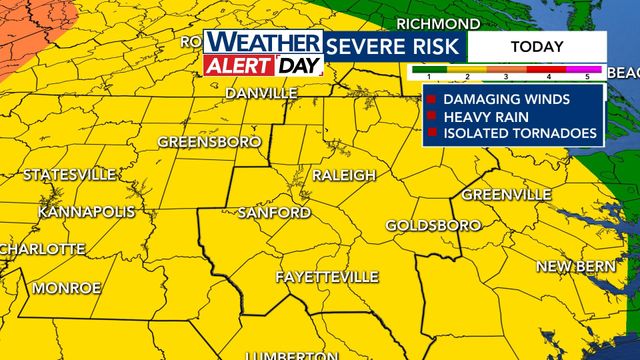NC congressman: Partisan gerrymanders undemocratic, un-American

Note: On Thursday spokespeople for U.S. reps. Mark Meadows and Walter Jones said the congressmen were mistakenly included on this brief. Those stories are here and here. Our initial coverage of the brief, as written Wednesday, appears below. This post's headline has been edited.
A trio of North Carolina congressmen, including two Republicans, signed a legal brief asking the U.S. Supreme Court to rein in partisan gerrymandering in what could be a landmark case out of Wisconsin.
Republican 11th District Congressman Mark Meadows and Republican 3rd District Congressman Walter Jones, along with Democratic 4th District Congressman David Price, are joined by 33 other current or former members of Congress in the bipartisan amicus brief.
For the Republicans, signing on puts them at odds with party leadership in the North Carolina General Assembly, where leaders have openly admitted their partisan intentions at times as they redraw maps struck down by the federal courts over evidence of racial gerrymandering.
It also puts them at odds with the Republican National Committee and the Republican State Leadership Committee, which works to elect Republicans to legislatures around the country partly because those bodies control election map-making not just for state legislatures, but for Congress. Both these groups filed amicus briefs backing the other side of the Gill v. Whitford case, which the Supreme Court is expected to hear in October.
These members of Congress argue that drawing election maps largely to benefit one party over the other is anathema to American democracy. It references the founding fathers and late President Ronald Reagan, and it puts out a call for new constitutional limits on the redistricting process.
"In our form of government, partisanship cannot be an end unto itself, as it is with partisan gerrymandering," the brief states.
The brief makes arguments familiar to North Carolinians who have followed the unsuccessful push for redistricting reform here – arguments GOP map makers often shunt aside.
"A cascade of negative results predictably follows: artificially drawn 'safe' districts make the general election uncompetitive and give party insiders and a small core of 'base' primary voters ... greater influence than the general electorate; political parties gain influence and obstruct independent, constituent-first representation; compromise with the other side becomes politically impossible even when there are areas of principled agreement and even when the voters want it; and the people grow frustrated with the capacity of the House to govern effectively, causing disillusionment with and disengagement from our democratic process," the brief states.
The brief quotes several members of Congress, who testify how partisan gerrymanders affect the functioning of the U.S. House.
Price says he knows members who "say they might be more moderate, but they just can’t be" and that it "all adds up to pretty extreme behavior." Meadows, who chairs the conservative House Freedom Caucus, is held out as an example of members pushing back against political parties' attempts to, "come between them and their constituents."
"If partisan gerrymandering remains unchecked, party insiders will use the redistricting process to threaten or punish independent-minded members," the brief states.
The brief also quotes Reagan, a GOP icon, who called for change 30 years ago.
"President Reagan explained that what the country needed was 'an end to the antidemocratic and un-American practice of gerrymandering congressional districts,'" the brief states. "Since President Reagan’s call to action, both major political parties have used partisan gerrymandering with ever greater frequency and efficiency, to the detriment of voters of all stripes. Amici therefore believe that the need for some constitutional boundaries is greater than ever."
State Sen. Ralph Hise, R-Mitchell, who led the state Senate's redistricting effort this year, didn't have time for an interview Wednesday, according to his legislative assistant. She forwarded a short comment via email instead.
“This brief does not apply in North Carolina, since the Congressional map we passed in 2016 split just 13 counties and 12 precincts, followed traditional redistricting principles, and is the most coherent and compact map passed in the modern history of our state," Hise said.
That map was drawn after the federal courts determined the legislature focused too closely on race in drawing its previous Congressional map. One of the guiding principles in that redraw – written into the General Assembly's criteria – was that the map elect 10 Republicans to Congress and three Democrats.
"I do not believe it’s possible to draw a map with 11 Republicans and two Democrats,” House Rules Chairman David Lewis said at the time.
Lewis, R-Harnett, is also in charge of the House's ongoing redistricting efforts. An attempt to reach him for comment Wednesday has not successful, but he said recently that he probably wouldn't couch the process in such partisan terms if given another chance, but he was trying to show the courts that race wasn't the deciding factor in new maps.
North Carolina has its own lawsuit targeting partisan gerrymandering, a case brought by Common Cause and the League of Women Voters. A panel of three federal judges ruled last week that this case can proceed.









